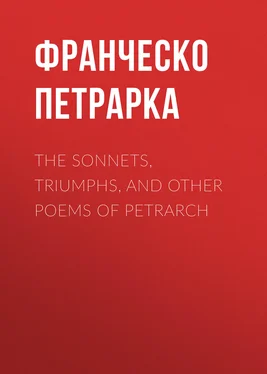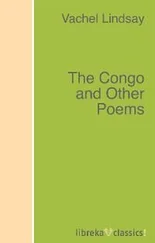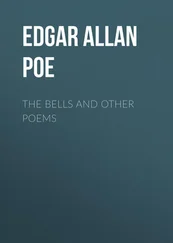Франческо Петрарка - The Sonnets, Triumphs, and Other Poems of Petrarch
Здесь есть возможность читать онлайн «Франческо Петрарка - The Sonnets, Triumphs, and Other Poems of Petrarch» — ознакомительный отрывок электронной книги совершенно бесплатно, а после прочтения отрывка купить полную версию. В некоторых случаях можно слушать аудио, скачать через торрент в формате fb2 и присутствует краткое содержание. Жанр: foreign_poetry, Поэзия, foreign_antique, foreign_prose, на английском языке. Описание произведения, (предисловие) а так же отзывы посетителей доступны на портале библиотеки ЛибКат.
- Название:The Sonnets, Triumphs, and Other Poems of Petrarch
- Автор:
- Жанр:
- Год:неизвестен
- ISBN:нет данных
- Рейтинг книги:5 / 5. Голосов: 1
-
Избранное:Добавить в избранное
- Отзывы:
-
Ваша оценка:
- 100
- 1
- 2
- 3
- 4
- 5
The Sonnets, Triumphs, and Other Poems of Petrarch: краткое содержание, описание и аннотация
Предлагаем к чтению аннотацию, описание, краткое содержание или предисловие (зависит от того, что написал сам автор книги «The Sonnets, Triumphs, and Other Poems of Petrarch»). Если вы не нашли необходимую информацию о книге — напишите в комментариях, мы постараемся отыскать её.
The Sonnets, Triumphs, and Other Poems of Petrarch — читать онлайн ознакомительный отрывок
Ниже представлен текст книги, разбитый по страницам. Система сохранения места последней прочитанной страницы, позволяет с удобством читать онлайн бесплатно книгу «The Sonnets, Triumphs, and Other Poems of Petrarch», без необходимости каждый раз заново искать на чём Вы остановились. Поставьте закладку, и сможете в любой момент перейти на страницу, на которой закончили чтение.
Интервал:
Закладка:
We have no distinct account how her husband regarded the homage of Petrarch to his wife—whether it flattered his vanity, or moved his wrath. As tradition gives him no very good character for temper, the latter supposition is the more probable. Every morning that he went out he might hear from some kind friend the praises of a new sonnet which Petrarch had written on his wife; and, when he came back to dinner, of course his good humour was not improved by the intelligence. He was in the habit of scolding her till she wept; he married seven months after her death, and, from all that is known of him, appears to have been a bad husband. I suspect that Laura paid dearly for her poet's idolatry.
No incidents of Petrarch's life have been transmitted to us for the first year or two after his attachment to Laura commenced. He seems to have continued at Avignon, prosecuting his studies and feeding his passion.
James Colonna, his friend and patron, was promoted in 1328 to the bishopric of Lombes in Gascony; and in the year 1330 he went from Avignon to take possession of his diocese, and invited Petrarch to accompany him to his residence. No invitation could be more acceptable to our poet: they set out at the end of March, 1330. In order to reach Lombes, it was necessary to cross the whole of Languedoc, and to pass through Montpelier, Narbonne, and Toulouse. Petrarch already knew Montpelier, where he had, or ought to have, studied the law for four years.
Full of enthusiasm for Rome, Petrarch was rejoiced to find at Narbonne the city which had been the first Roman colony planted among the Gauls. This colony had been formed entirely of Roman citizens, and, in order to reconcile them to their exile, the city was built like a little image of Rome. It had its capital, its baths, arches, and fountains; all which works were worthy of the Roman name. In passing through Narbonne, Petrarch discovered a number of ancient monuments and inscriptions.
Our travellers thence proceeded to Toulouse, where they passed several days. This city, which was known even before the foundation of Rome, is called, in some ancient Roman acts, "Roma Garumnæ." It was famous in the classical ages for cultivating literature. After the fall of the Roman empire, the successive incursions of the Visigoths, the Saracens, and the Normans, for a long time silenced the Muses at Toulouse; but they returned to their favourite haunt after ages of barbarism had passed away. De Sade says, that what is termed Provençal poetry was much more cultivated by the Languedocians than by the Provençals, properly so called. The city of Toulouse was considered as the principal seat of this earliest modern poetry, which was carried to perfection in the twelfth and thirteenth centuries, under the patronage of the Counts of Toulouse, particularly Raimond V., and his son, Raimond VI. Petrarch speaks with high praise of those poets in his Triumphs of Love. It has been alleged that he owed them this mark of his regard for their having been so useful to him in his Italian poetry; and Nostradamus even accuses him of having stolen much from them. But Tassoni, who understood the Provençal poets better than Nostradamus, defends him successfully from this absurd accusation.
Although Provençal poetry was a little on its decline since the days of the Dukes of Aquitaine and the Counts of Toulouse, it was still held in honour; and, when Petrarch arrived, the Floral games had been established at Toulouse during six years. 3 3 "The Floral games were instituted in France in 1324. They were founded by Clementina Isaure, Countess of Toulouse, and annually celebrated in the month of May. The Countess published an edict, which assembled all the poets of France, in artificial arbours, dressed with flowers; and he that produced the best poem was rewared with a violet of gold. There were, likewise, inferior prizes of flowers made in silver. In the meantime, the conquerors were crowned with natural chaplets of their own respective flowers. During the ceremony degrees were also conferred. He who had won a prize three times was pronounced a doctor ' en gaye science ,' the name of the poetry of the Provençal Troubadours. This institution, however fantastic, soon became common, through the whole of France."— Warton's History of English Poetry , vol i. p 467.
Ere long, however, our travellers found less agreeable objects of curiosity, that formed a sad contrast with the chivalric manners, the floral games, and the gay poetry of southern France. Bishop Colonna and Petrarch had intended to remain for some time at Toulouse; but their sojourn was abridged by their horror at a tragic event 4 4 I have transferred the following anecdote from Levati's Viaggi di Petrarea (vol. i. p. 119 et seq.). It behoves me to confess, however, that I recollect no allusion to it in any of Petrarch's letters, and I have found many things in Levati's book which make me distrust his authority.
in the principal monastery of the place. There lived in that monastery a young monk, named Augustin, who was expert in music, and accompanied the psalmody of the religious brothers with beautiful touches on the organ. The superior of the convent, relaxing its discipline, permitted Augustin frequently to mix with the world, in order to teach music, and to improve himself in the art. The young monk was in the habit of familiarly visiting the house of a respectable citizen: he was frequently in the society of his daughter, and, by the express encouragement of her father, undertook to exercise her in the practice of music. Another young man, who was in love with the girl, grew jealous of the monk, who was allowed to converse so familiarly with her, whilst he, her lay admirer, could only have stolen glimpses of her as she passed to church or to public spectacles. He set about the ruin of his supposed rival with cunning atrocity; and, finding that the young woman was infirm in health, suborned a physician, as worthless as himself, to declare that she was pregnant. Her credulous father, without inquiring whether the intelligence was true or false, went to the superior of the convent, and accused Augustin, who, though thunderstruck at the accusation, denied it firmly, and defended himself intrepidly. But the superior was deaf to his plea of innocence, and ordered him to be shut up in his cell, that he might await his punishment. Thither the poor young man was conducted, and threw himself on his bed in a state of horror.
The superior and the elders among the friars thought it a meet fate for the accused that he should be buried alive in a subterranean dungeon, after receiving the terrific sentence of " Vade in pace ." At the end of several days the victim dashed out his brains against the walls of his sepulchre. Bishop Colonna, who, it would appear, had no power to oppose this hideous transaction, when he was informed of it, determined to leave the place immediately; and Petrarch in his indignation exclaimed—
"Heu! fuge crudeles terras, fuge littus avarum."—Virg.
On the 26th of May, 1330, the Bishop of Lombes and Petrarch quitted Toulouse, and arrived at the mansion of the diocese. Lombes—in Latin, Lombarium—lies at the foot of the Pyrenees, only eight leagues from Toulouse. It is small and ill-built, and offers no allurement to the curiosity of the traveller. Till lately it had been a simple abbey of the Augustine monks. The whole of the clergy of the little city, singing psalms, issued out of Lombes to meet their new pastor, who, under a rich canopy, was conducted to the principal church, and there, in his episcopal robes, blessed the people, and delivered an eloquent discourse. Petrarch beheld with admiration the dignified behaviour of the youthful prelate. James Colonna, though accustomed to the wealth and luxury of Rome, came to the Pyrenean rocks with a pleased countenance. "His aspect," says Petrarch, "made it seem as if Italy had been transported into Gascony." Nothing is more beautiful than the patient endurance of our destiny; yet there are many priests who would suffer translation to a well-paid, though mountainous bishopric, with patience and piety.
Читать дальшеИнтервал:
Закладка:
Похожие книги на «The Sonnets, Triumphs, and Other Poems of Petrarch»
Представляем Вашему вниманию похожие книги на «The Sonnets, Triumphs, and Other Poems of Petrarch» списком для выбора. Мы отобрали схожую по названию и смыслу литературу в надежде предоставить читателям больше вариантов отыскать новые, интересные, ещё непрочитанные произведения.
Обсуждение, отзывы о книге «The Sonnets, Triumphs, and Other Poems of Petrarch» и просто собственные мнения читателей. Оставьте ваши комментарии, напишите, что Вы думаете о произведении, его смысле или главных героях. Укажите что конкретно понравилось, а что нет, и почему Вы так считаете.












